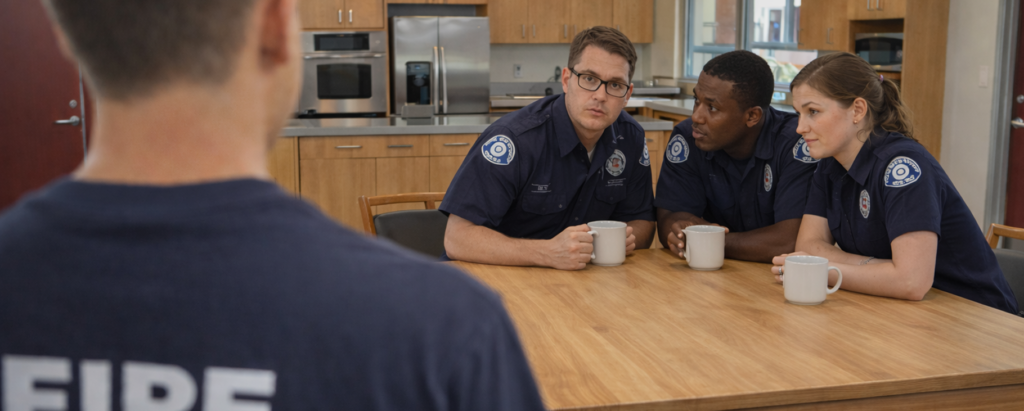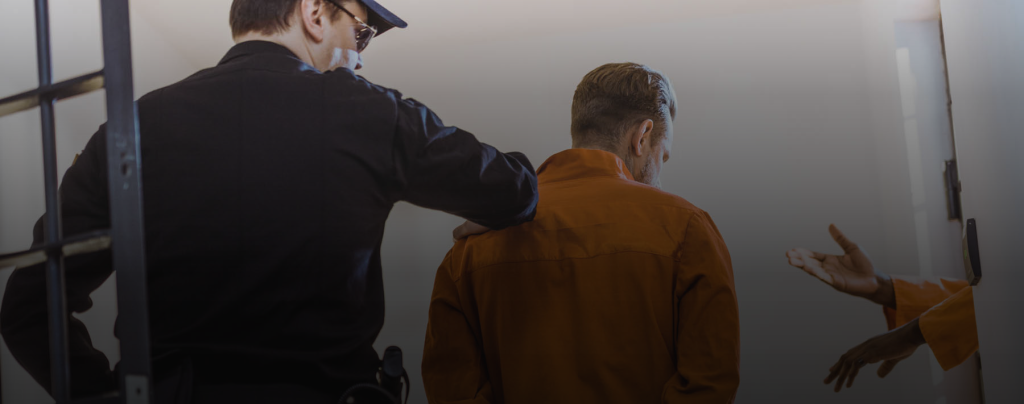Firefighters are hired and trained to respond under pressure, often making life-or-death decisions in chaotic environments. But what about the ethical decisions that come with the job? What happens when doing the right thing isn’t as clear-cut as choosing the right fitting for a hose and hydrant?
In the Lexipol webinar, “Why Good People Make Bad Decisions: Ethical Decision Making in the Fire Service,” Chief Kris Blume and Susie Zavala, LMSW, offer thought-provoking observations about the real-world ethical dilemmas facing the fire service today. Drawing on clinical insight and personal experience, they challenge firefighters and fire service leaders alike to examine how stress, culture and organizational dynamics can shape ethical choices.
Here are five key points from the webinar that underscore how vital ethics training and moral awareness are to fire service leadership.
WHITE PAPER – 10 key concepts in public safety leadership: DOWNLOAD NOW
1. Environment and Culture Shape Ethical Decisions
We often think of ethics as a personal trait — you either have integrity or you don’t. But Chief Blume and Zavala push back on this simplistic view. Ethical decision making, they argue, is strongly influenced by external factors: the situation, the system and the organizational culture.
“Most of us make questionable calls based off of the reward of silence,” Zavala says. That silence comes from systems that prioritize conformity and obedience over curiosity and questioning.
“Ethics is not a decision between right and wrong,” Blume adds. “It’s often a decision between right and right.”
Ultimately, leadership must recognize how organizational norms influence decision making, working diligently to shape an ethical culture that welcomes feedback and critical reflection.
Watch a clip:

2. Moral Injury Is a Hidden Threat in Fire Service Culture
If you’ve never heard the term “moral injury,” you’re not alone. But the concept should be at the forefront of every leader’s mind. Moral injury refers to the emotional, psychological and even spiritual distress that arises when someone engages in (or witnesses) actions that go against their core values.
Zavala explains: “This is not a diagnosis… This is more like death by a thousand paper cuts.” She goes on to describe how firefighters often come into the profession with high ideals — to save lives, protect communities and serve honorably. But over time, they may find themselves navigating broken systems (like behavioral health or child welfare) in situations where their actions fall short of their expectations. That dissonance takes a toll.
“The telltale signs are guilt, shame, loss of identity, and spiritual distress,” Zavala says. And leadership is not immune. “I also see leaders who have to make decisions that go against their own morals because they are required by policy.”
Watch a clip:

“Give yourself grace and don’t suffer alone.”
3. Ethical Blind Spots Are Real — And Fixable
One of the webinar’s most useful frameworks is the idea that ethical decision making happens across three domains: individual, situational and systemic.
Chief Blume underscores this point as he discusses the vulnerability gap — the space between stimulus and response. “This is where we either act on instinct or take a moment to think,” he says. “That gap is where ethics lives.”
The presenters explore how stress, fatigue, lack of information or peer pressure can compress this gap and push people into flawed decisions. They point to famous psychology experiments like the Milgram and Stanford Prison experiments to show how ordinary people can drift into unethical behavior when the system rewards obedience or conformity.
Put bluntly: “People don’t just jump to unethical behavior,” says Zavala. “They inch toward it. One compromised decision, one silence, one shortcut.”
The fix? Leaders must create an environment of psychological safety where it’s okay to speak up, ask questions and admit mistakes.
Watch a clip:

4. Ethical Leadership Requires Culture, Not Just Compliance
Too often, agencies only get around to talking about ethics in the aftermath of failure. Whether individual or agency-wide, these kinds of breakdowns are apt to prompt conversations about right and wrong. But ethics should be an integral part of daily operations, not just disciplinary action.
Chief Blume says it best: “Discipline is not about the big decisions. It’s how we consistently apply values to the small things.”
From the condition of the firehouse to how new recruits are treated, culture communicates what’s acceptable and what’s not. Public safety leaders of all stripes need to enforce expectations consistently and lead by example.
Zavala recommends incorporating ethics into debriefs, hot washes and after-action reviews: “Instead of focusing just on tactics and performance, ask: Were we aligned with our values during this incident?”
Leaders also need to model vulnerability. As Blume points out, “Leadership is the hub that influences discipline, cohesion, culture and education. It doesn’t matter what rank you hold. Everyone has the power to lead ethically.”
Watch a clip:

5. Training Is Where Ethical Readiness Begins
One of the most important things to learn about ethical judgment is that it doesn’t happen in a vacuum. It requires practice, exposure and conversation.
“Training is about preparing before that moment of decision,” Blume says. “It allows us to develop judgment and activate our intuition.”
Zavala adds that ethical preparedness should be baked into every part of training, not limited to annual “check the box” compliance courses. One simple way to do this is to include ethics questions in every training scenario. Reflect not just on what was done, but why.
“An easy way people can integrate this is during a debrief. Instead of focusing just on the tactical,” Zavala adds, “focus on the judgment, the ethics, the emotional toll.”
Watch a clip:

Ethics as a Leadership Skill
Firefighters are trained to size up a structure, understand the physics and act quickly but with deliberate intent. But ethical decision making requires just as much training and just as much intention.
As Chief Blume and Susie Zavala make clear, ethical drift doesn’t happen because people are bad. It happens because the job is hard, the systems are imperfect and the stress is constant.
Leaders at all levels must foster a culture that brings ethics out of the shadows and into daily operations. That means:
- Prioritizing psychological safety
- Encouraging open dialogue about tough decisions
- Modeling vulnerability and accountability
- Integrating ethics into every level of training
“Give yourself grace,” Zavala urges, “and don’t suffer alone.”
Ethical strength is like any other kind of strength in the fire service — it’s built through repetition, reflection, and the willingness to confront the hard stuff together.
- White Papers



